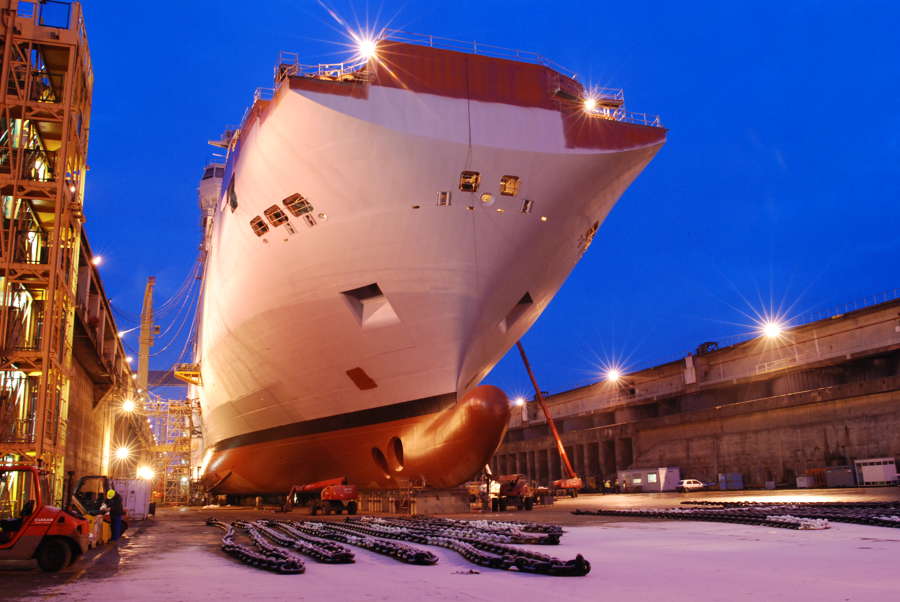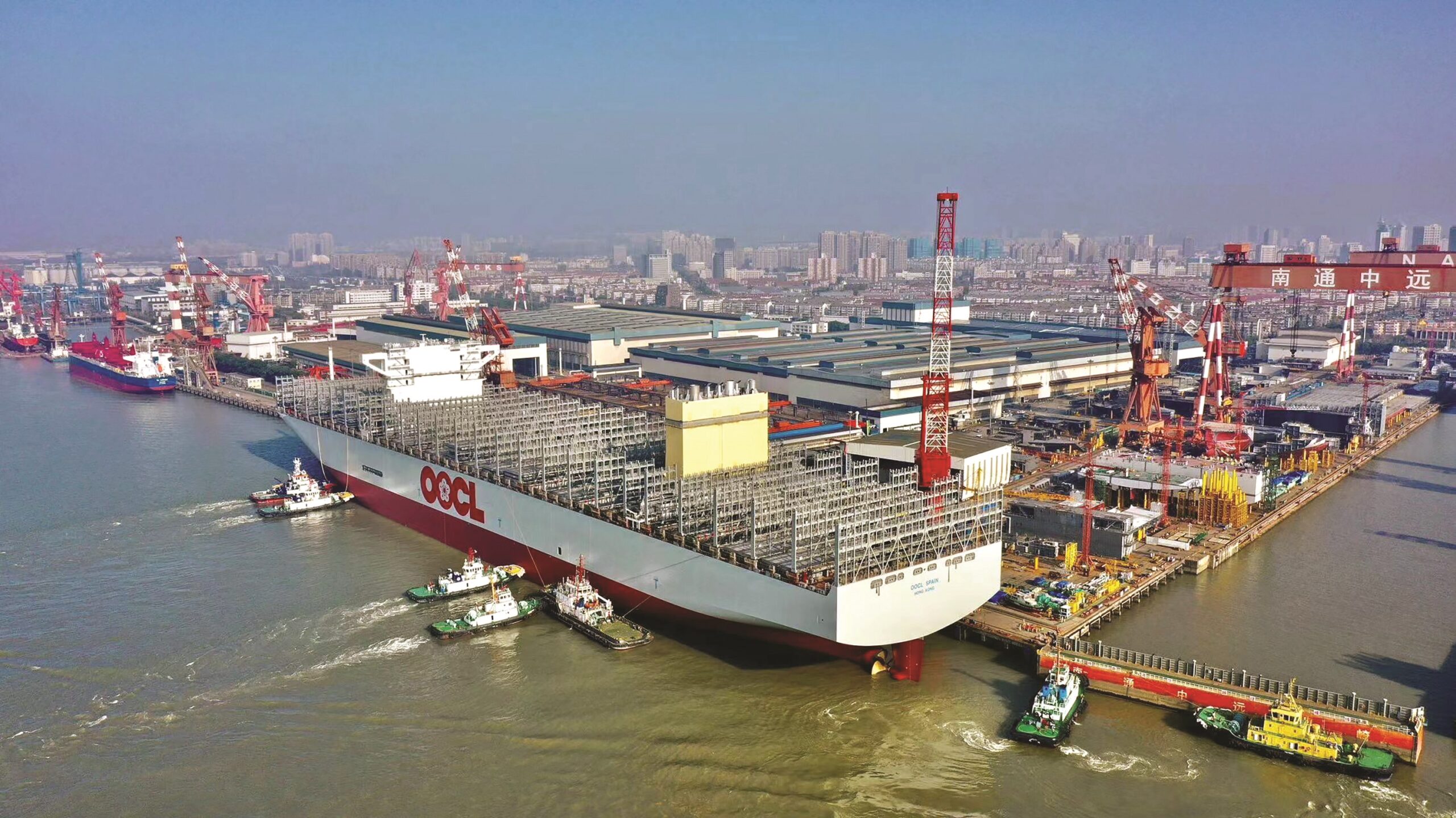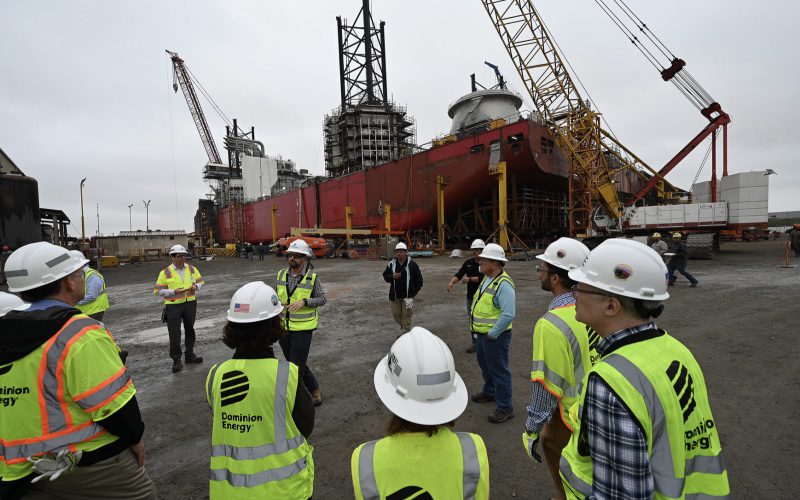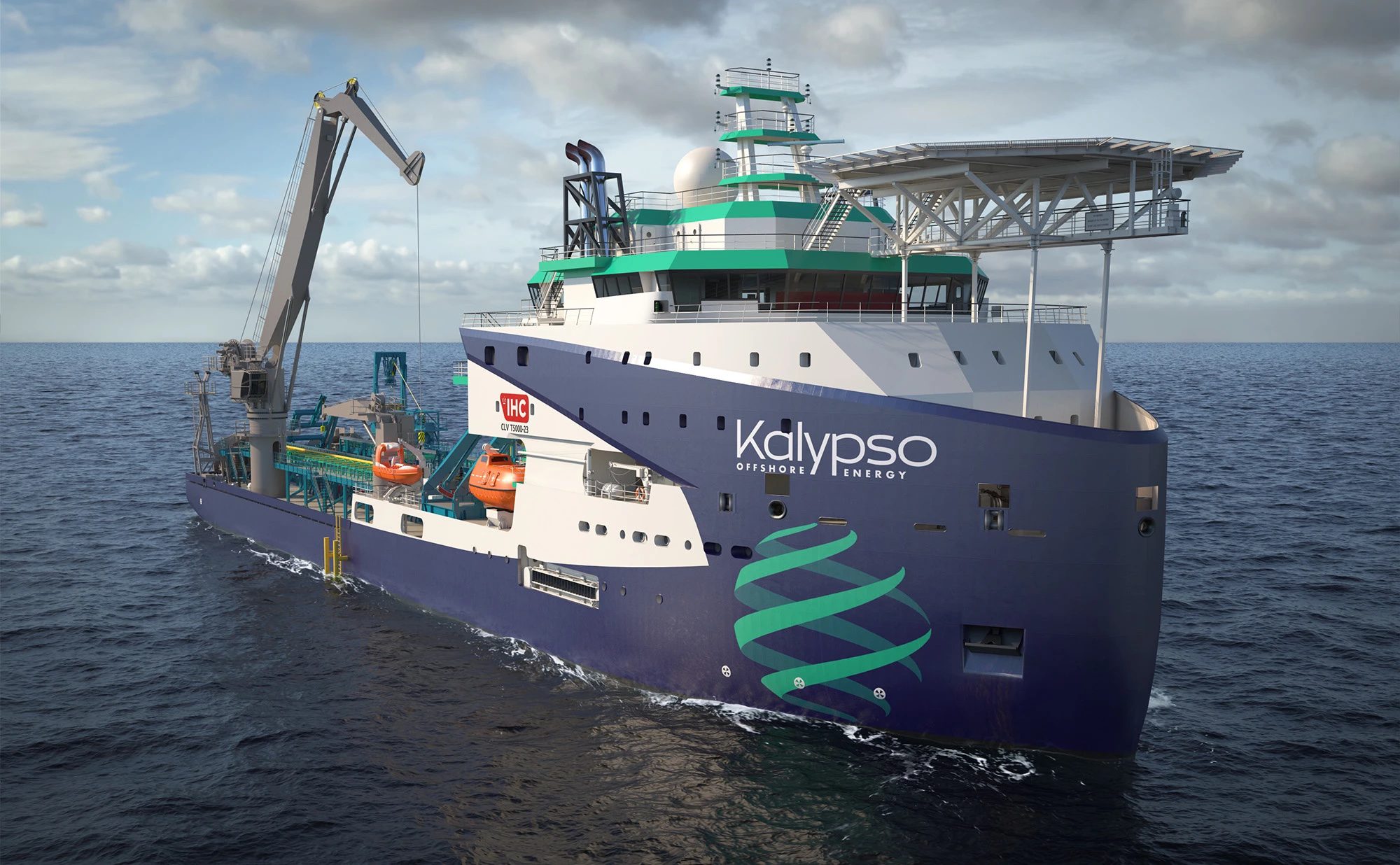FILE PHOTO: A ship under construction at the STX France shipyard in Saint-Nazaire, France. Photo: STX France
By Helene Fouquet and Mark Deen (Bloomberg) — As first steps go, President Emmanuel Macron’s decision Thursday to nationalize a shipyard is as French as it gets.
The move, aimed at blocking Italy’s Fincantieri SpA from taking control of the 155-year-old shipbuilder, is confounding those who’ve been expecting Macron to ring in a new era of business friendliness. The week had after all started with his attempt to put France’s finances in order by deciding on Monday to slash public spending on housing. And then this.
“Macron is all about strengthening the business environment in France but his first action is more interventionism,” said Ludovic Subran, chief economist at Euler Hermes in Paris. “For the private sector, this sends the wrong message.”
But Macron has his reasons. A slide in the polls, simmering populism, and a tense and difficult reform of the labor market that awaits him in the fall have colluded to push the new leader to take a step that in one stroke addresses all three issues. And if it displeases the Italians, so be it.
“Macron is pragmatic, and the nationalization of the Atlantic Shipyards is a message to France,” said Jerome Fourquet, the head of pollster Ifop. “Politically, he can’t deregulate the economy and not give any guarantees to French voters. He is at the start of a major labor reform, he is cutting state welfare and tells industry workers he isn’t Santa Claus. So he knows he must give back by protecting a symbolic and historic industry. This is positive for him at home.”
Announcing the decision, Finance Minister Bruno Le Maire said the nationalization is an effort to protect jobs and to prevent the outfit’s “unique know-how in making ships” from falling into foreign hands. The price tag of the nationalization of 80 million euros ($93 million) is small. It’s also a “temporary” move while France and Italy seek an accord, Le Maire said.
Colbertist Move
Temporary or not, the move is straight out of the dirigiste playbook of Old France, sharpened into an art form by Louis XIV’s finance minster Jean-Baptiste Colbert in the 1600s.
The decision came after the 39-year-old president visited the shipyard in May, ordered a review of the deal with the Italians, which had been signed just weeks before, and vowed to defend what he called a “strategic industry.”
The shipyard, which makes military vessels as well as cruise boats, is also part of what French presidents — who place the country among the world’s great industrial powers — call “fleurons,” or family jewels.
The nationalization decision, 60 days after calling for the review, comes at a crucial political moment for Macron. The youngest French leader since Napoleon is also now one of the least popular in the early days of his mandate. An Ifop poll published on Sunday showed his approval rating fell 10 percentage points in a month to 54 percent. His prime minister’s popularity has also dived.
Macron’s move also comes ahead of a tough, reform-filled month of September, says Fourquet. The government is poised to set in motion a major plan to ease labor laws and shrink the 2018 budget by 20 billion euros.
Reassuring Action
For voters confused by Macron’s plans for the tax system and shocked by a recent public spat between the president and the head of the army, the nationalization decision may be reassuring, the pollster said.
Soon after the announcement, the populist National Front party welcomed the decision, saying in a statement on its website that the move will help “preserve the strategic and industrial interests of France.” Its leader Marine Le Pen re-tweeted the statement. Jean-Luc Melenchon, leader of the far-left France Unbowed party, called it a “good decision.”
Outside France, the country’s moves have been received with consternation, notwithstanding Le Maire’s insistence that it’s a stop-gap measure and that “it’s not the state’s role to head a shipyard.”
The Italians in particular have been miffed. Macron spoke with Italian prime minister Paolo Gentiloni on Thursday. Le Maire will be heading to Rome on Aug. 1 to smooth things over and also to see if there’s a way to do the deal “with better guarantees.” France’s plan is to create “a great European shipyard, also in the military sector,” Le Maire said.
‘Incomprehensible’
Macron was concerned that Fincantieri might join forces with another Italian entity, CR Trieste, to hold a controlling stake in STX, potentially posing a threat to 2,500 jobs in the Atlantic port town of Saint-Nazaire. A month before Macron’s presidential victory, Fincantieri agreed to buy 48 percent of STX from Korea’s STX Offshore & Shipbuilding Co. Ltd. with about another 6 percent going to the banking foundation CR Trieste.
Macron was also concerned of the possibility that the shipyard’s know-how would be passed on to China because of an agreement between Fincantieri and China State Shipbuilding Corporation to develop the cruise-ship industry in the Asian country. Fincantieri has responded that the China deal does not include any technology transfer.
“We feel that the decision taken by the French government not to follow through on accords that had already been concluded is serious and incomprehensible,” Italian Finance Minister Pier Carlo Padoan and Economic Development Minister Carlo Calenda said in joint statement.
Thursday’s nationalization may not be the last interventionist move under Macron. In October, the government will have to decide whether to exercise its option to buy as much as 15 percent of French train-maker Alstom SA from Bouygues SA.
“Some of my predecessors believed the state has no role to play,” Macron, then economy minister, said in February 2016, as he argued that the government should be a “strategist.” “I believe in an industrial policy, but in a realistic, lucid and long-term way.”
© 2017 Bloomberg L.P
Unlock Exclusive Insights Today!
Join the gCaptain Club for curated content, insider opinions, and vibrant community discussions.

 Join The Club
Join The Club













